- GHG Emission Targets and Reductions
- Priority Themes for Achieving Net Zero Carbon
- Basic Approach and Procedures for Achieving Net Zero Carbon
- History of Group Initiatives
- GX League Targets
- Initiatives for Achieving Net Zero Carbon: Oil Exploration and Production/Petroleum and Petrochemicals
- Initiatives for Achieving Net Zero Carbon: Renewable Energy Business
- Initiatives for Achieving Net Zero Carbon: Mobility Business
- Initiatives for Achieving Net Zero Carbon: Contributing to Co-Creation with Local Communities
The Cosmo Energy Group recognizes that the formulation and implementation of management plans with greater awareness of climate change is essential for the planet, society, and the company to achieve sustainable growth. Accordingly, the Cosmo Energy Group announced its 2050 Net Zero Carbon Declaration in May 2021. We have developed a roadmap summarizing our efforts and processes to achieve this goal, based on a scenario analysis recommended by the Task Force on Climate-related Financial Disclosure (TCFD) and analysis of our external and internal environments.
Addressing Climate Change — Support for the TCFD Recommendations
GHG Emission Targets and Reductions
While fulfilling its responsibility to provide a stable supply of energy, the Group aims to reduce GHG emissions from its business operations (Scope 1+2) by 30% in 2030 (compared to fiscal 2013) through a shift to decarbonized energy and the use of negative emissions technologies. In addition, the Group is aiming for net zero carbon emissions, including Scope 3, by 2050 to contribute to carbon neutrality for society as a whole.
Scope 1 and 2 Emissions Reduction Targets
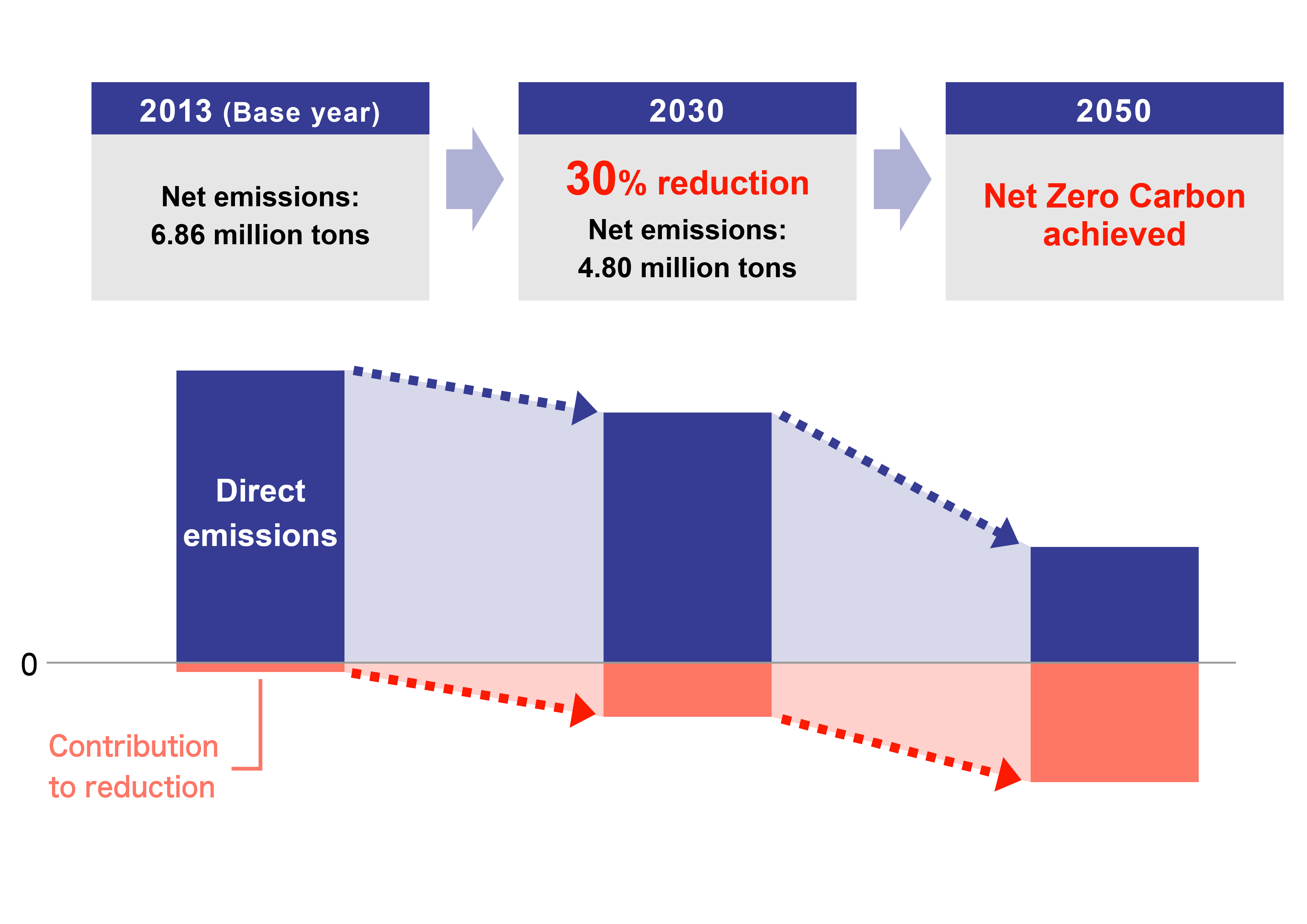
Scope 3 Emissions Reduction Initiatives
We will work together with our stakeholders on “To create energy that shapes the future” and contribute to the realization of a decarbonized society.
- Bolster green electricity supply chain
- Development and supply of biofuels including SAF
- Initiatives for hydrogen supply chain and carbon recycled products
Priority Themes for Achieving Net Zero Carbon
The Group will contribute to the carbon neutrality of society as a whole by striving “to create energy that shapes the future” as well as working on the shift to decarbonized energy and negative emission technologies.
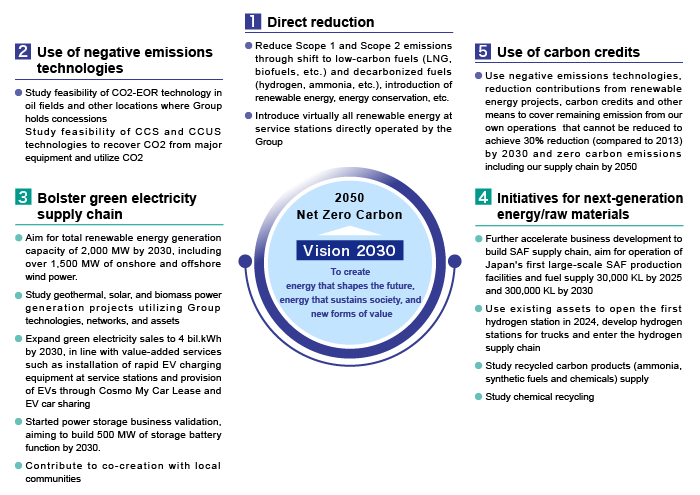
Basic Approach and Procedures for Achieving Net Zero Carbon
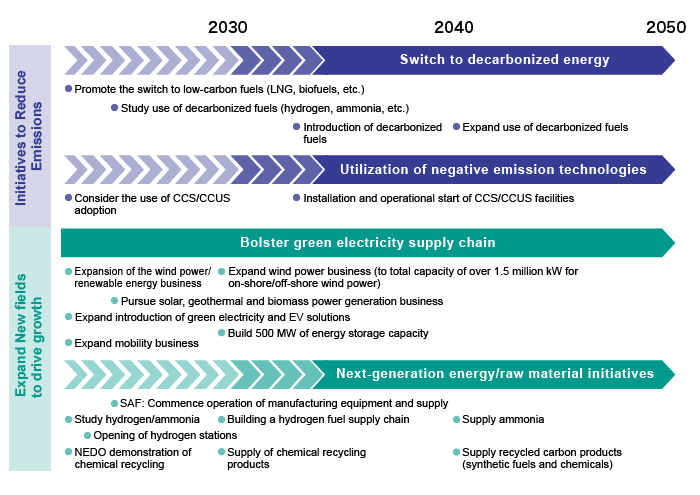
History of Group Initiatives
As a petroleum company, the Cosmo Energy Group has been operating its business with a strong awareness of environmental issues for over 20 years. Our environmental efforts began with the establishment of a Global Environment Committee in 1994. Then in 2001, we established the Cosmo Energy Group Management Vision: “In striving for harmony and symbiosis between our planet, man and society, we aim for sustainable growth towards a future of limitless possibilities.” Based on this philosophy, we have pursued environmental initiatives across our business activities, for instance, establishing the Eco Card Fund and entering the wind power generation business.
Decarbonization Initiatives
In 2013, the Group closed its Sakaide Refinery as part of supply system restructuring in order to strengthen the competitiveness of its refineries. As a result of this closure, the Group’s CO2 emissions were reduced by approximately 1 million tons per year. Since 2013, we have fulfilled our responsibility to provide a stable supply of petroleum products by maintaining high operation rates at our three remaining refineries.
Along with implementing energy-saving measures, we are striving to improve efficiency and reduce our emissions per unit of production, aiming for a 7% reduction over 10 years.
GX League Targets
Group Targets for the First Phase of the GX League Initiative
The Cosmo Energy Group participates in the GX League initiative launched by the Japanese government. The emission reduction targets for GX League members are shown below. The GX League target figures are different from those of the Group’s Roadmap goals for the following two reasons.
(1) Differences in the net zero target calculation methods used by the Group and the GX League
(2) Differences in the 2030 target setting approach
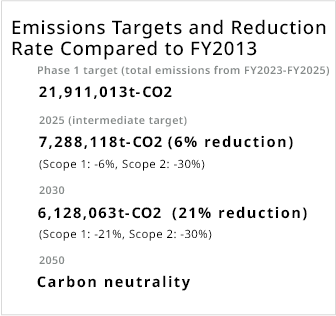
(1) Differences in the net zero target calculation methods used by the Group and the GX League
The three differences between the method for calculating GHG emissions used for the Group’s net zero target and for the GX League are listed below.
- Overseas emissions: The Group’s net zero target accounts for emissions outside of Japan.
- Electricity and heat supplied to others: Deducted under the Group’s net zero target (SHK system1).
- Avoided CO2 emissions: The Group’s net zero target accounts for avoided CO2 emissions within the larger society.
(2) Differences in the 2030 target setting approach
Following the release of its roadmap for net zero carbon, the Group has continued to search out all untapped potential for further boosting reduction measures. When submitting the target to the GX League, the 2030 target was set at 21%, a figure which takes into account the reduction potential currently under review.
The Group plans to update its roadmap for net zero carbon, as well as the GX League targets, as its review of these reduction measures continues.
1. SHK is a system for calculating, reporting, and publishing greenhouse gas emissions based on the Act on Promotion of Global Warming Countermeasures.
Initiatives for Achieving Net Zero Carbon: Oil Exploration and Production/Petroleum and Petrochemicals
Understanding the External Environment
Further efforts are required to achieve decarbonization in Cosmo Energy's oil exploration and production/petroleum and petrochemical businesses. Negative emissions technologies are expected to be more commonplace by 2030 as the development of separation, recovery and utilization technologies reduces cost.
In the hydrogen sector, pilot manufacturing is underway, though further cost reduction is needed. As for ammonia, efforts are underway to secure its use as an energy source as quickly as possible. Progress is being made outside of Japan on the practical application of next-generation fuels, and the goal in Japan, too, is to achieve its widespread use in the future.
Initiatives to Reduce and Eliminate Carbon
1. Shift to Decarbonized Energy
The Group will reduce Scope 1 and Scope 2 emissions through a fuel shift (to use of LNG, hydrogen, ammonia, etc.), introduction of renewable energy, and energy conservation. The Group is working to switch virtually all electricity used at all service stations operated by Cosmo Oil Sales to electricity from renewable energy sources.
2.Use of Negative Emissions Technologies (CCS/CCUS, CO2-EOR, etc.)
The Group will study the feasibility of utilizing carbon dioxide enhanced oil recovery (CO2-EOR) technology in oil fields and other locations where it holds concessions. Studies will also be conducted on carbon dioxide capture and storage (CCS) and carbon dioxide capture, utilization and storage (CCUS) technologies to recover CO2 from major equipment and utilize CO2.
Further, the Group has concluded a memorandum of understanding with the Abu Dhabi National Oil Company based on an agreement to begin a joint investigation for the exploration of technologies that can contribute to decarbonization and a feasibility assessment regarding CCS/CCUS in the Emirate of Abu Dhabi.

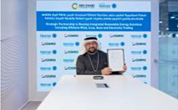
3. Initiatives for Next-Generation Energy and Raw Materials
Utilizing its expertise in producing and handling hydrogen, the Group will consider the hydrogen station business, engineering related to hydrogen production and other matters, and the use of receiving terminals in Japan and overseas hydrogen sources to establish a hydrogen supply chain.
Further, the Group has concluded a memorandum of understanding with Masdar, a UAE-based company with which the Group has maintained a close relationship, regarding the consideration of collaboration in the field of decarbonization in, for example, offshore wind power farms, hydrogen, and ammonia projects.
In addition, the Group’s proposal of “Establishment of a Supply Chain Model for Bio-jet Fuel Production from Domestic Used Cooking Oil” was selected as a public call project by the New Energy and Industrial Technology Development Organization (NEDO). Through this project, the Group aims to demonstrate and establish a supply chain model for bio-jet fuel production from used cooking oil, with full-scale supply of sustainable aviation fuel (SAF) beginning in 2025.
The Group company Maruzen Petrochemical was selected for a NEDO Green Innovation Fund project in recognition of its chemical recycling technology. Through this project, the company aims to establish chemical recycling technology by 2030.
As a further initiative, the company is also studying the possibility of supplying recycled carbon products (synthetic fuels and chemicals).
Initiatives for Achieving Net Zero Carbon: Renewable Energy Business
Understanding the External Environment
In 2021, the Japanese Cabinet approved its Sixth Strategic Energy Plan. This plan presents an outlook that, in light of the new GHG emission reduction target for fiscal 2030, anticipates renewable energy accounting for 36–38% of power sources in fiscal 2030 under the ambitious assumption that various challenges in both supply and demand will be overcome. As part of these efforts, the introduction of solar photovoltaic/onshore wind generation is expected to continue and offshore wind projects are expected to accelerate.
In addition, with an eye toward achieving a carbon neutral world, efforts to decarbonize led by corporations and local governments are expanding. The Group recognizes the growing need for electricity from renewable energy sources and increased expectations for the development and supply of renewable energy power sources.
Initiatives to Reduce and Eliminate Carbon
1. Onshore/Offshore Wind Power Projects
The Group company Cosmo Eco Power plays a central role in the Group's renewable energy business. The company is building an entirely in-house system capable of developing, designing, constructing, operating and maintaining onshore wind power plants. The company is also engaged in offshore wind power projects, which are expected to expand in the future.
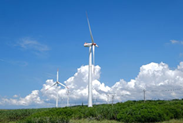
2. Retail Electricity Sales (Supply of Electricity from Renewable Energy Sources)
The Group supplies renewable energy generated at Group power plants to both individuals and corporations.
3. Other Renewable Energy
The Group is studying the possibilities for solar, geothermal and biomass power generation that utilizes its technologies and networks.
4. Cosmo Zero Carbon Solution
The Group has consolidated its assets to provide a package of products related to the introduction and utilization of renewable energy and EVs to help promote decarbonization by corporations and local governments.

Initiatives for Achieving Net Zero Carbon: Mobility Business
Understanding the External Environment
In light of Japan's 2050 Carbon Neutral Declaration, the Group recognizes the growing demand among corporations and local governments for EVs and other next-generation vehicles.
Initiatives to Reduce and Eliminate Carbon
Package of Solutions for Introduction and Effective Utilization of EVs
The Group has proactively incorporated EVs into its existing car leasing business and has begun providing easy and convenient EV car sharing services. In addition, by leveraging the assets of its renewable energy business, the Group provides comprehensive support for decarbonization efforts.
1. Providing EVs via Cosmo My Car Lease Services
The Group is now able to provide EVs through its Cosmo My Car Lease and Yasashii (friendly) Car Sharing services. By supplying these EVs with its own electricity generated from renewable energy sources, the Group aims to help achieve a zero-emission EV world.
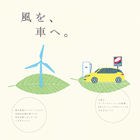
2. Hydrogen Station Projects
The Group is working to enter the hydrogen supply chain by opening its first hydrogen station in 2024, utilizing existing assets and developing a hydrogen station for trucks.
3. Rapid EV Charging Equipment at Service Stations
The Group is focused on installing rapid charging equipment for EVs at affiliated service stations and developing related services.
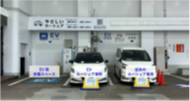
Initiatives for Achieving Net Zero Carbon: Contributing to Co-Creation with Local Communities
Understanding the External Environment
As more municipalities are declaring themselves to be zero carbon cities, the need for a variety of decarbonization methods is rising. At the same time, companies affiliated with these municipalities are also expected to take the initiative in decarbonizing.
Initiatives to Reduce and Eliminate Carbon
Contributing to Community Decarbonization in Energy and Mobility Sectors
The Group is considering projects that contribute to community revitalization and lead to next-generation businesses in the mobility, renewable energy, and distributed energy sectors. The Group is also pursuing initiatives to help communities decarbonize by utilizing its nationwide network of service stations.
1. Aizu Innovation Office
The Group established its Innovation Office in Aizu Wakamatsu to help create regional models utilizing ICT, environmental technology, and other technologies in Aizu Wakamatsu Smart City. The office aims to analyze energy and mobility-related case studies in order to grasp the needs of the community and incorporate these needs into Group projects.
